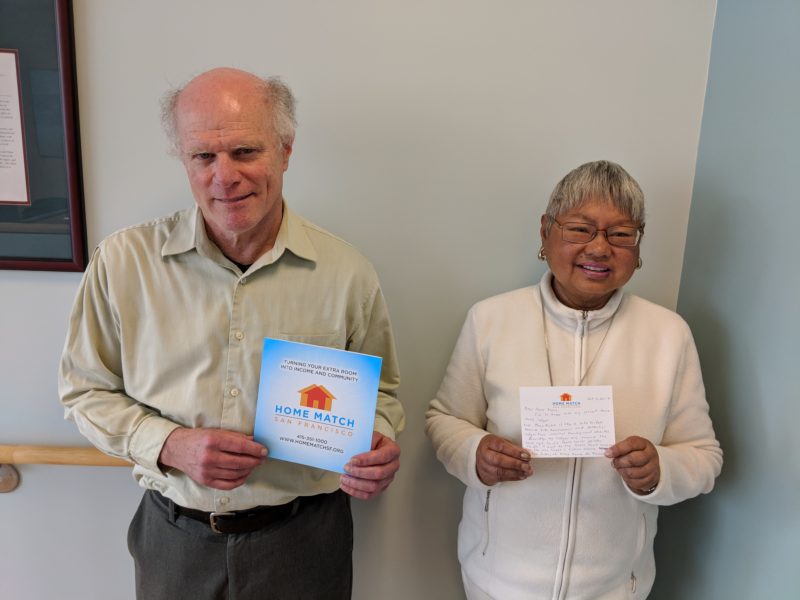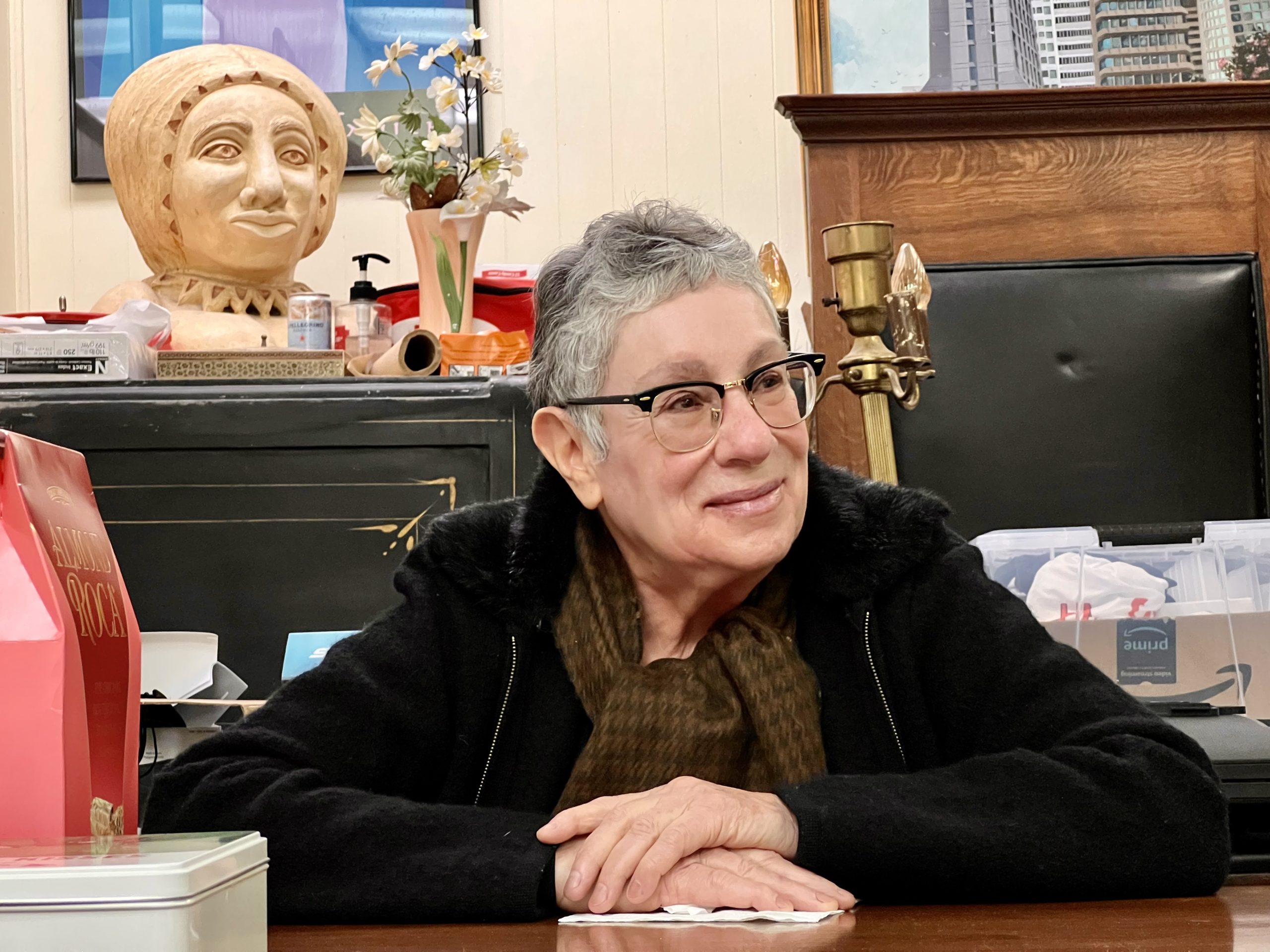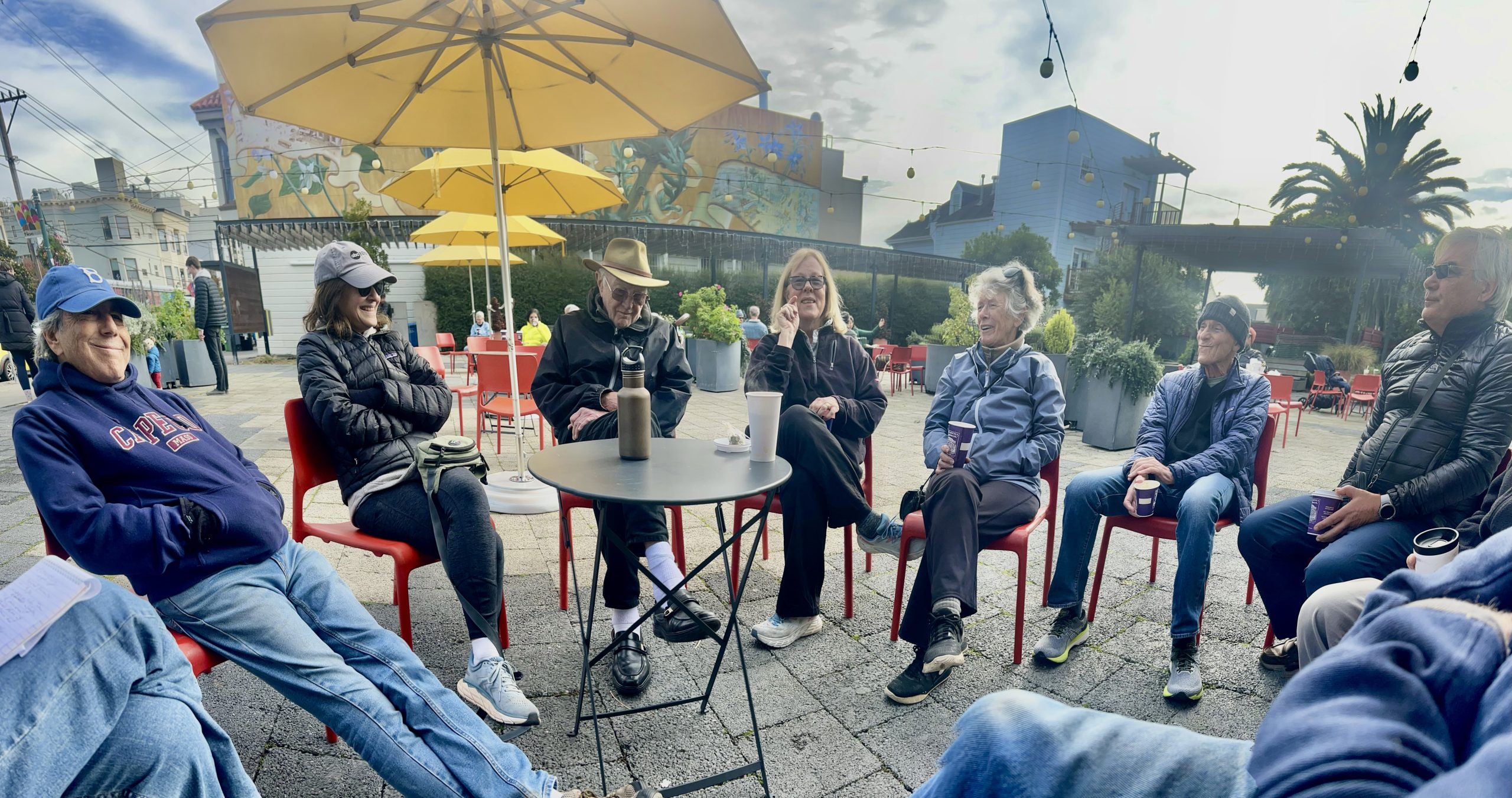Homeowner seeks lodger. Renter seeks home share. Home Match puts them together.
Joyce Calagos, 71, a homeowner in the Crocker-Amazon neighborhood of San Francisco, is determined to live out her days in her own home. Social Security isn’t going to cover all her expenses. So, she began looking for a roommate.
On the other side of the coin is David Reffkin, 67. He’s looking for a room to rent. “I had my own perfect home-sharing situation for 28 years,” he said, “but the homeowner decided to sell her house to move into senior housing.”

Both turned to Home Match, which helps homeowners with extra rooms connect with people who need an affordable place to live. Now in its second year, it is funded by the Mayor’s Office of Housing and Community Development. It is a program of the nonprofit Covia in partnership with the Northern California Presbyterian Homes and Services. They run similar programs in Fremont, and Marin and Contra Costa counties.
After a disastrous go-around trying to find a suitable housemate on Craigslist, Calagos signed on with Home Match. In addition to needing financial help, she also wanted companionship. She’s happy with the results. “My housemate now is Catholic and was a teacher. I was involved with education and I’ve studied theology.”
There are many reasons homeowners decide to sign on with Home Match. “I was assured by the extensive Home Match process, especially the criminal background check,” said Calagos.
Feeling safer is one of the benefits
“Living with someone else makes some people feel safer,” said Director Karen Coppock. Other benefits include reduced financial worry, mutual assistance with chores such as cooking and household maintenance and increased independence. “Home sharing is good for your health.”
Reffkin, a classical musician and music contractor, had done home maintenance in exchange for part of his rent. “I shared cooking and did chores; it was a very agreeable arrangement. I think I make a good housemate as I don’t practice my violin at home. I’m very considerate.”
He has a lot of confidence in Home Match, he says, because they were caring and very thorough in the interviewing process.
The average age of homeowners looking for a match is 72, and most are female. Home seekers can be as young as 18 to as old as 92, but the average is 52. Right now, their list of home seekers is about 60 percent female.
Rents range between $800 and $1,200. Lodgers must be 18 years of age and live, work or attend school in San Francisco. Their gross income cannot exceed 90 percent of area median income ($74,600 a year for a one-person household). They must pass a background check and sign a housing agreement with the homeowner.
Lodgers are different than tenants, Coppock explained. Legally, a lodger situation offers homeowners more security in opening their home to a stranger. “A tenant is someone who rents from a landlord who either doesn’t live in the same apartment or home or who has multiple tenants in the home they occupy,” she said. “A lodger is the only renter living in an owner-occupied home and is subject to different regulations.”
Lodgers vs. tenants
The lodger model allows the homeowner to state a preference for gender. Most importantly, if the arrangement goes south, police will evict the lodger after a three-day termination notice if the situation is tense or frightening. But Coppock said they’ve never been anywhere close to that happening.
“We visit quite frequently at the beginning of the match and offer mediation for difficult situations. It usually just boils down to the ability to talk things through.”
Coppock visits the homeowner before a match is made. Interviews take place in the Home Match office at 881 Turk St. For both homeowner and house seeker, there are 11 pages of forms to fill out. Questions for the homeowner cover such things as why they are seeking a housemate, their employment status and the description of their home, e.g., close to public transportation, wheelchair accessible, lock on the bedroom door. The home seeker is asked their income, their employment status and if they have children.
Both are queried about their living preferences, such as if they want a service in exchange for partial rent, or whether they use drugs or alcohol. They are asked about their housecleaning style, television viewing and cooking habits and, for home seekers, whether they will want to have visitors. Each has to provide three personal references.
Covia is a nonprofit with faith-based roots in the Episcopal and Presbyterian traditions and a 50-year history. The San Francisco program is modeled after HIP Housing, a private, nonprofit in San Mateo County that has created home-sharing solutions for 65,000 people since 1979.





